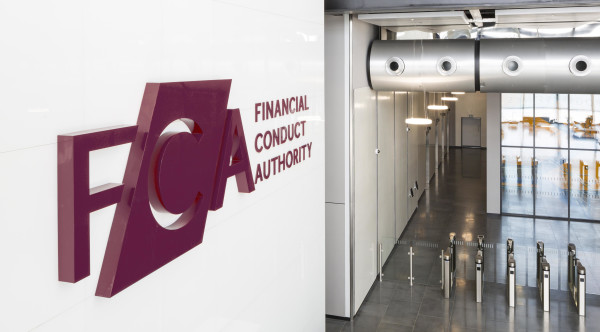

In its financial promotions data for the second quarter of the year ending June 30, the FCA said it reviewed 451 promotions.
Of these, 374 were amended or withdrawn following the FCA’s intervention with 24 authorised firms.
Retail lending amounted to 59 per cent of interventions while retail investments was 25 per cent. This was followed by retail banking and general insurance and protection which were 8 per cent each.
Some of the most common breaches involved credit brokers, mortgage intermediaries and investment platforms.
The FCA said 58 per cent of the reviewed promotions involved website or social media promotions and 28,000 lenders and brokers were issued with a Dear CEO letter to stop using misleading terms in their advertising.
It said: “We have been undertaking proactive monitoring, which will continue into 2022 Q3 and if firms fail to comply, we will take action which could include banning adverts or requiring firms to change, amend or withdraw them.”
In Q2 2022, the FCA received 6,010 reports about potential unauthorised business, down from 7,234 in Q1.
From these, it issued 286 alerts about unauthorised firms and individuals, with 22 per cent of these related to clone scams.
This is down from Q1 where there were 762, with more than 11 per cent of these related to clone scams.
“Over the last quarter, we continue to see a considerable number of cases involving unauthorised firms and individuals who are offering claims management services, often requiring a substantial upfront fee, or regular administration payments for the promise of recovering funds on behalf of consumers,” the FCA said.
“Other ongoing trends include increased use of bloggers and influencers on social media, such as Instagram, Facebook and YouTube, to target younger age groups. The aim is to persuade them to invest in products with promises of high or guaranteed returns but which offer no protection if things should go wrong.”
The City watchdog said it continued to see an ongoing trend in the number of bloggers promoting credit on behalf of unauthorised third parties, with a particular growth in financial promotions targeting students.
“Where we identify illegal content, we will issue an alert where appropriate and request for the content to be removed,” it said.
“In the most serious cases where there is evidence of consumer harm, this may result in parties engaged in this activity being required to pay restitution or face criminal sanctions.”
In November, Google offered the FCA $3mn (£2.19mn) worth of ad credits to help fight online scams and pledged a further $2mn (£1.46mn) in credits to support industry scam awareness campaigns.
The following month, social media giants Twitter, Meta (previously Facebook), and Microsoft, all committed to introducing a revised advertising onboarding process, which would require UK regulated financial services advertisers to be authorised by the FCA.
Given the role played by social media and online platforms, and the steps taken by Google, the FCA said it continues to engage with the largest online platforms, including Meta, YouTube and Twitter, to put in place similar policies.
“We expect commitments from Meta to implement a mandatory solution this year,” it added.
“We have been clear that the protection of consumers from fraudulent advertising should be strengthened through clear legal obligations in the online safety bill. We welcome the announcements that the government has recently made about the scope of the bill.
“These include imposing a duty on the largest online platforms to protect consumers from fraudulent advertising and designating material relating to fraud offences as ‘priority illegal content’ under the draft bill.”
Interventions by the FCA
The City watchdog provided examples of how it intervenes.
For misleading social media influencer promotion, one example was the FCA identified that a wealth management firm had approved the financial promotions of a social media influencer, to promote its services of commission free investments.
“We considered the promotions provided consumers with the misleading impression that they could reduce debt by following the steps taken by the social media influencer and use the firm’s services as a mechanism to make money,” it said.
“We also identified a TikTok video on the influencer’s profile which promoted the benefits of the firm’s investment business but failed to explain the risk to the consumer’s capital.”
As a result, it took action which required the firm to remove all active paid for sponsored promotions by influencers across all platforms.
It also imposed a requirement (VREQ) that the firm must refrain from issuing or approving any new promotions generated by the user of a social media service.
“We expect authorised firms issuing and/or approving financial promotions to take responsibility in making sure all communications of financial promotions are clear, fair and not misleading and otherwise comply with our relevant rules,” it said.
“This can also include oversight of appointed representatives, or introducer appointed representatives, and marketing across all media platforms such as websites, paid for Google ads and social media sites.
“We will continue to intervene swiftly and assertively against authorised firms that make non-compliant financial promotions.”
Earlier this year, the FCA warned investment firms on the use of influencers to promote their products on social media, after seeing a sharp uptick in regulatory action on promotions by authorised firms.
In April, Nikhil Rathi, chief executive at the FCA, said the regulator was being tougher on firms, with one in seven applicants not gaining authorisation, up from one in 13 applicants to one in seven.
sonia.rach@ft.com
What do you think about the issues raised by this story? Email us on FTAletters@ft.com to let us know



